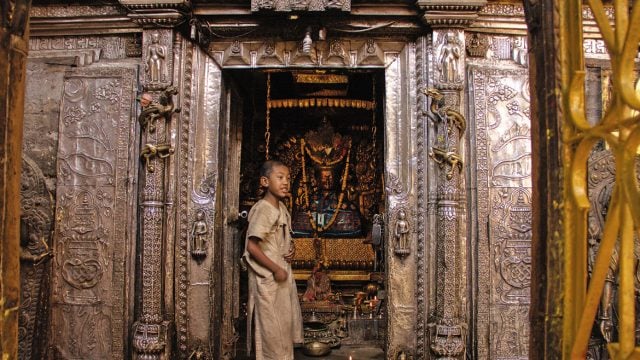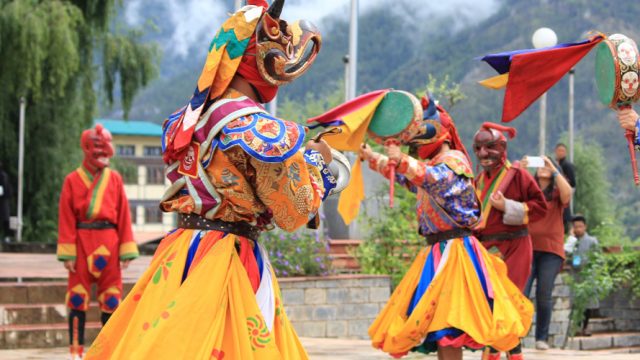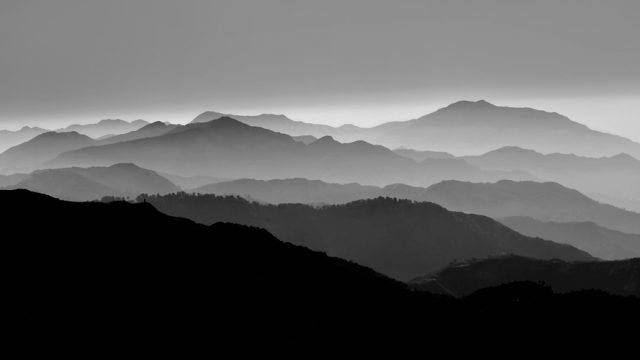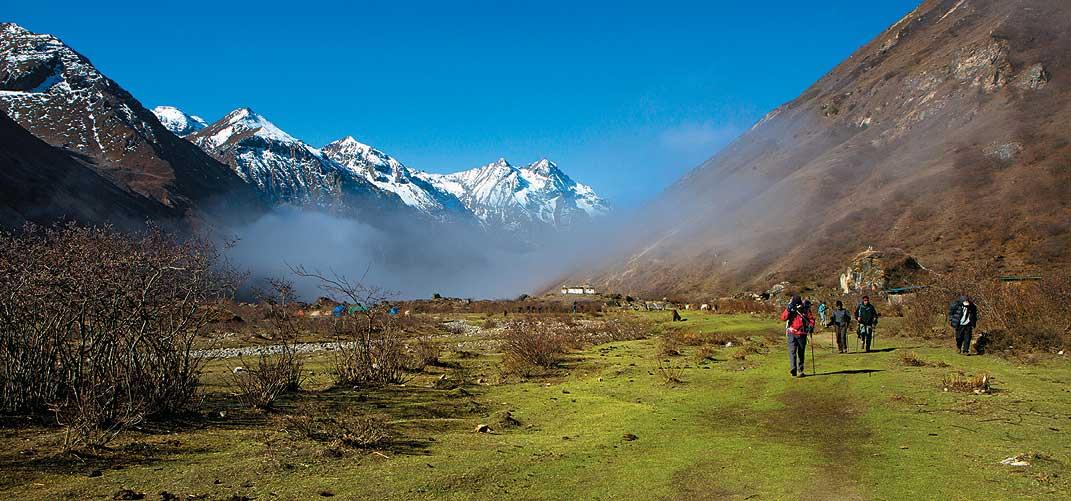
Jangothang camp, also called the Jomolhari Base Camp.
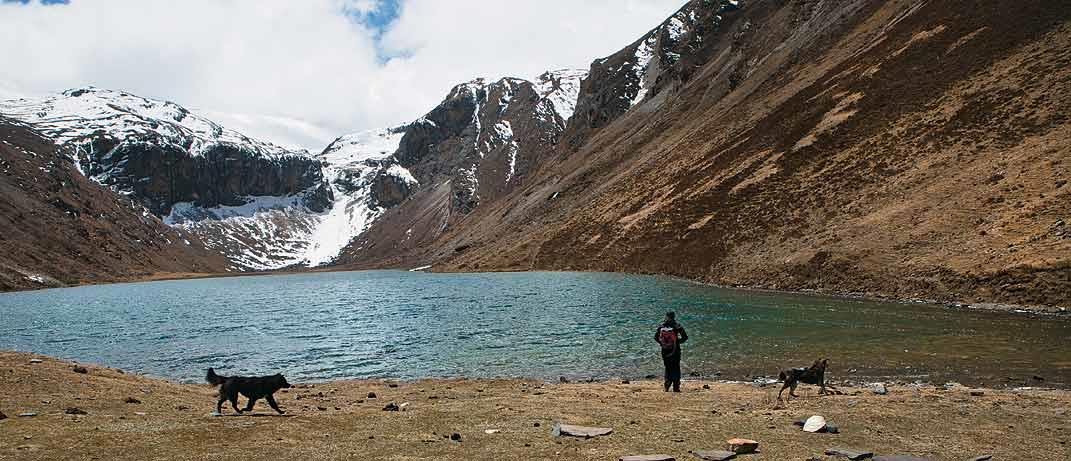
One of the twin lakes of Tsophu, a two-hour walk from Jangothang.
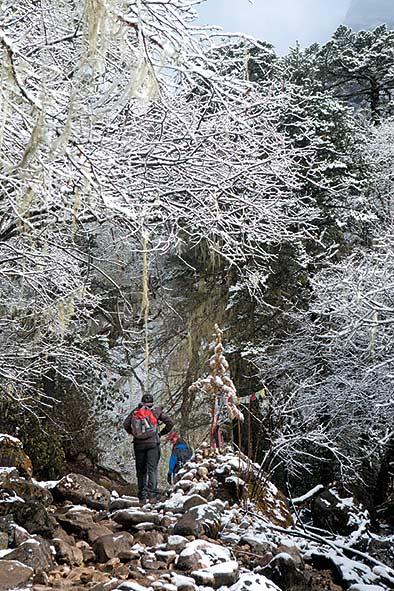
We walk through a forest of juniper and conifers during the climb to Jangothang.
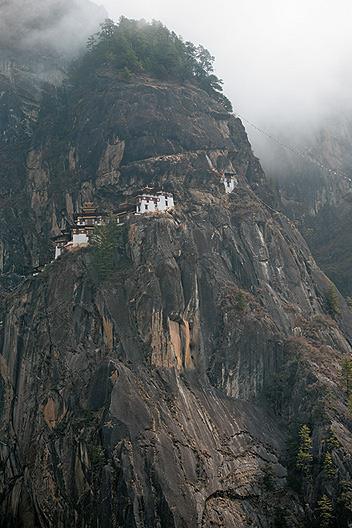
We visited the Taktshang Gompa or Tiger's Nest Monastery before the trek. Associated with the tantric master Guru Padmasambhava, the monastery lies improbably perched on the side of a sheer cliff that rises almost 900m from the Paro Chu valley.
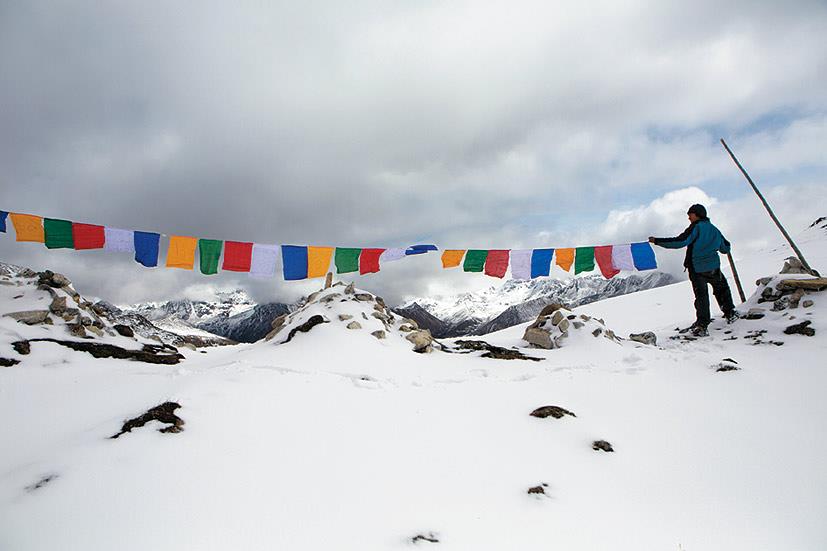
Our support team strings out prayer flags at Jhari La (4,750m), the third pass on the trek.
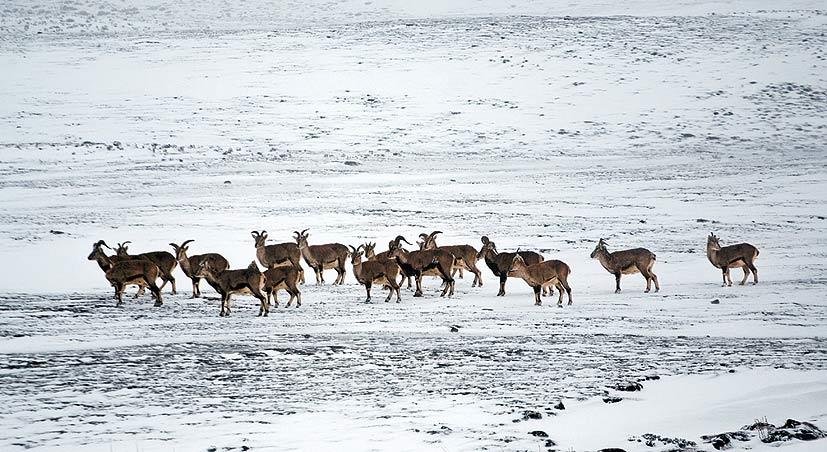
A herd of bharal or blue sheep near Gogu La (4,440m), the second pass we crossed on the trek.
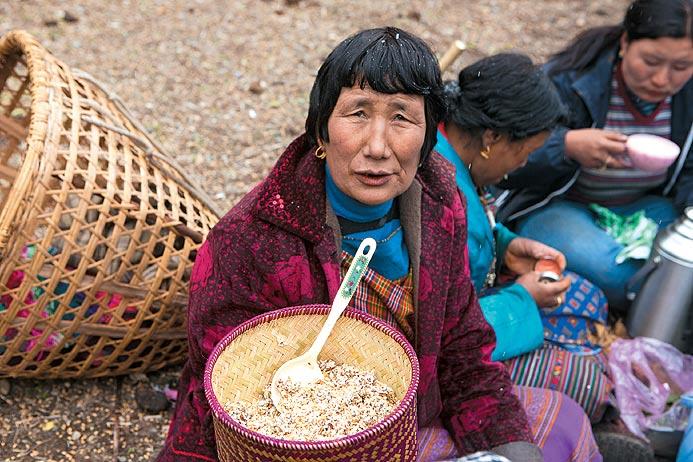
A woman at the yak village of Chebisa offers me zow, a crunchy roasted rice dish in a bangchung (woven basket), traditionally served to guests and weary travellers in Bhutan.
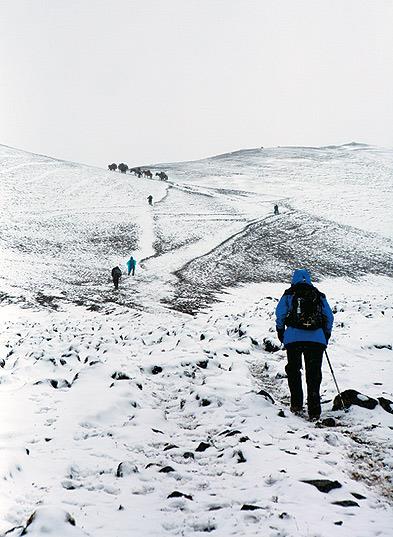
Beyond the Jomolhari Base Camp the trail winds its way up into spectacular highland country and remote yak herding Layap villages. The climb to Nyele La (4,870m), the first of the four passes.
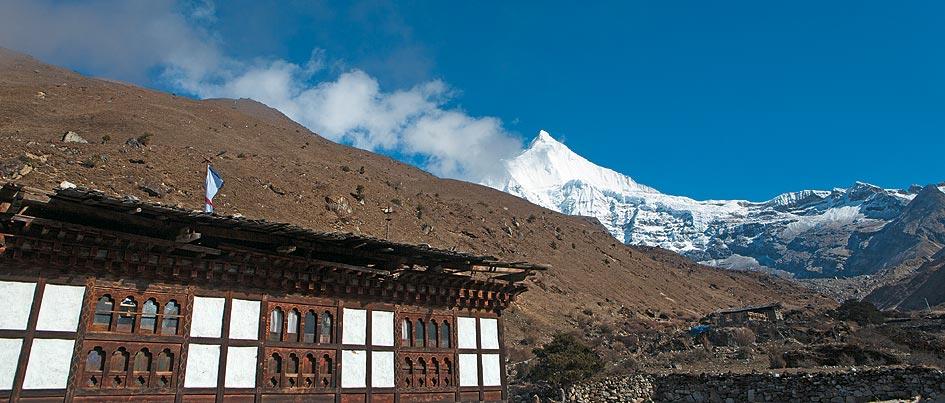
The peak of Jichu Drake (6,794m) makes a stunning backdrop to a nomad herders' home at Jangothang
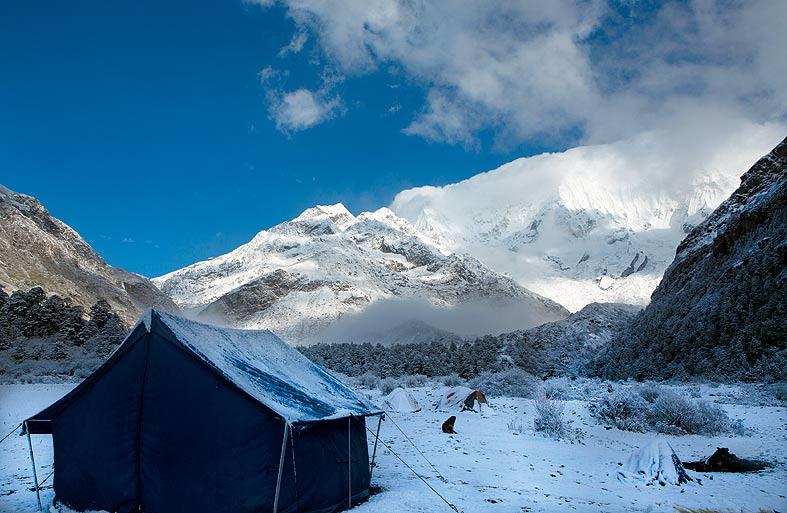
The summit of Tiger mountain towering over the campsite at Limithang after the final pass of the trek.
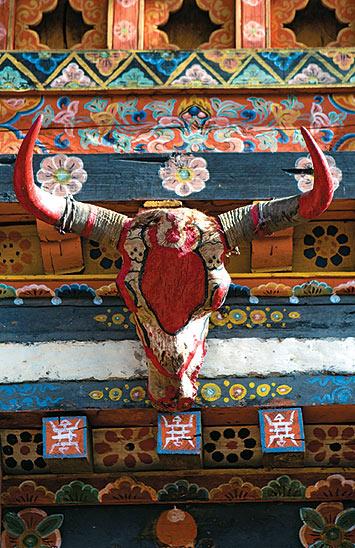
After the marathon pass crossings, we descend to the roadhead at Gasa, renowned for its hot springs. The village of Laya with its unique language, traditions and dress makes for a lovely rest day. A painted yak's head adorns the entrance to a home in the village.
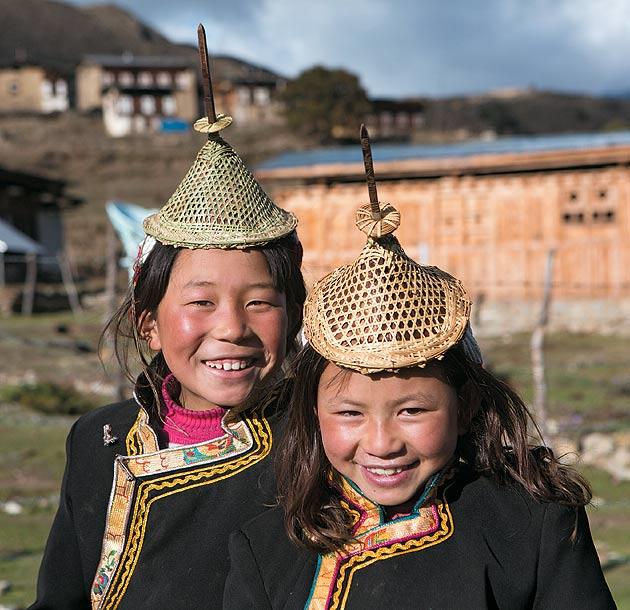
Schoolgirls in Laya wearing black wool kiras with colourful borders and billos (bamboo hats) decorated with strings of beads.
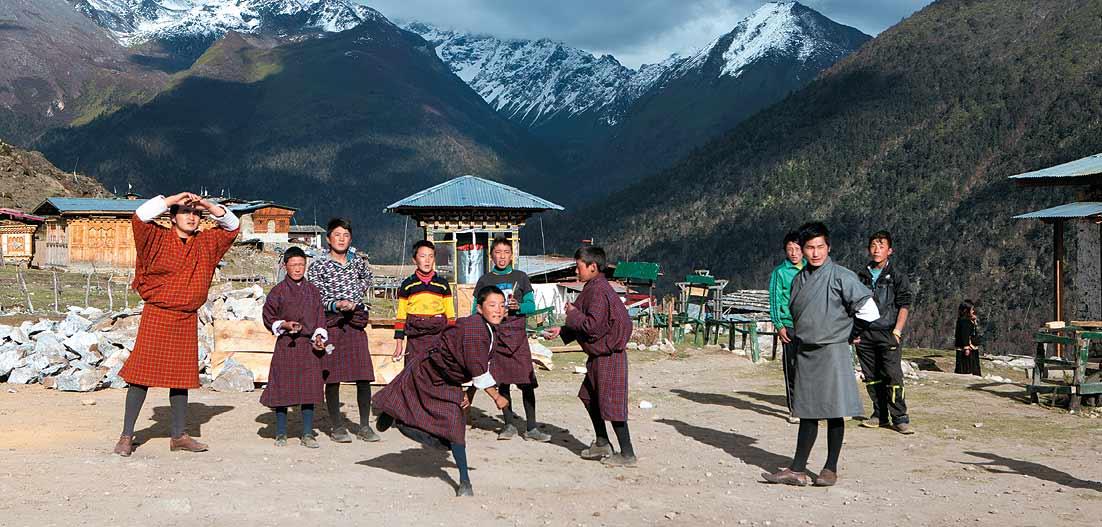
A school match final of Khuru in progress at Laya. Khuru or darts is the most favourite sport in Bhutan after archery. It is played outdoors with the target placed a whopping 20 metres from the players.
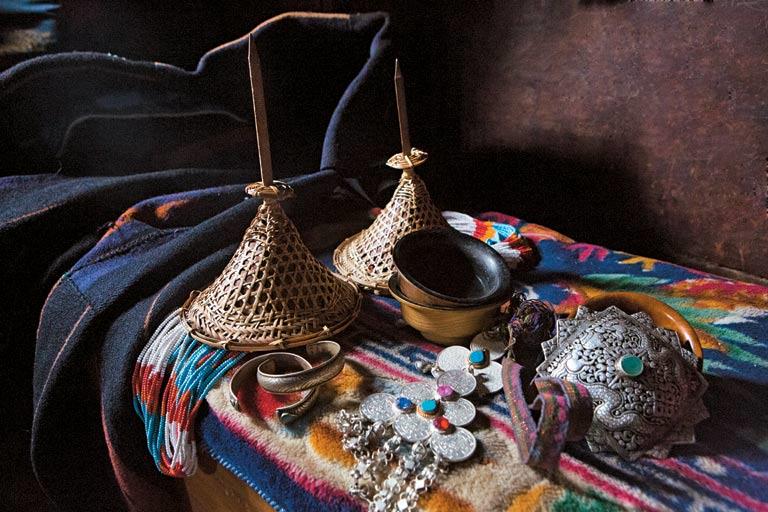
Traditional jewellery of the Layaps.
Laya Gasa trek
Photo Feature
photos of Bhutan


